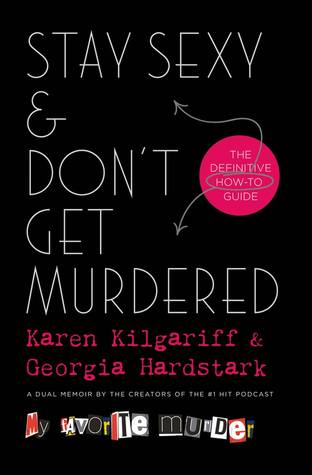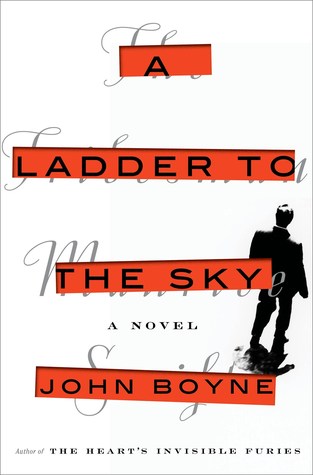It doesn't matter if you fail. Your trying is what sets the tone for your whole life story. Think of everything you do as being chapters in your future autobiographical self-help book about murder. Your “career” is just another word to help you categorize your journey through life. Why not start brave and bold and believing in yourself?
I'll begin by saying that I'm not a “Murderino”, but my daughter is and we've listened to a few episodes of the My Favorite Murder podcast together; I know who Karen Kilgariff and Georgia Hardstack are and I recognise the value and appeal of what they put out into the world. So, from the point-of-view of a not-totally-invested reader, I'd say that this “autobiographical self-help book about murder” was a thoroughly decent read. Karen and Georgia share their life stories (stating that many of the details have never been shared with their fans before), and they are open and thoughtful and bring their acid humour to tough topics; just like on the podcast. On the other hand, I don't know that Stay Sexy & Don't Get Murdered could be considered terribly well-written – I found passages clunky, the advice kind of basic and repetitious, some of the humour forced – but I'm sure that when my daughter (the intended audience) gets to read this, it will be everything she was hoping for. (Note: I was fortunate to receive an ARC from the publisher and passages quoted may not be in their final forms.)
EVERYONE HAS AN AGENDA. No matter who it is: your aunt, the government, raccoons. We're all just out here in the world trying to get what we want. You are, too. It's not necessarily a bad thing. It's also not permanent. You can change your agenda at any time. Just don't let anyone convince you to put your agenda aside in place of theirs, even if they claim to have all the answers. Especially if they claim to have all the answers. Ugh. People who claim to have all the answers NEVER have ANY answers. Anyway, thanks for buying this advice book.So, this is an advice book – Karen and Georgia make only a couple of references to murder and serial killers, and only where it ties in to the advice they are giving on how to stay safe (physically and mentally) out in the world. The book is formatted in what they call essays, with each of the authors sharing their spin on catchphrases from the podcast (“Don't Be A Lunatic”; “You're in a Cult, Call Your Dad”; “Stay Out of the Forest”; etc.), and each section ends with one of the authors interviewing the other on the topic. I liked the way this interview ties up each section – not only does it feel more like their conversations in the podcast, but it reinforces the point they make a few times about the importance of asking thoughtful questions of others and really listening to the answers; the importance of having people to share your deepest stuff with, whether it's your clutch of closest friends or a therapist. I do wonder if this book would have wide appeal to a male audience (I know there are male Murderinos), but I reckon it's acknowledged that people can only share from their own experiences. From the section “Buy Your Own Stuff”, Georgia's personal story leads to the statement, “I realized that dudes who talk about their 'crazy ex-girlfriend' are full of shit. What they're really talking about is someone they hurt and didn't leave the way they found.” And in the same section, Karen writes, “Being a thirteen-year-old girl is simply the worst experience you can have in life, including all cancers and bear attacks. It is a daily series of betrayals and base humiliations that you must figure out a way to look cute during.” Either way, I nodded along with those statements.
I don't know, if I have to give some sort of advice here to all you sweet baby angels who want more than how you're currently living, I'll say, just remember as long as you're attempting to not be a dick and doing your best to do good things, you're worthy of a good life, one that you're proud of and when you wake up every morning makes you stoked to be yourself. And if you don't wake up stoked to be you, figure out the first step you can take toward that life you want. Once you've taken that first step, then figure out the next step, and so on. It might feel like a long journey (it is), but for me, that was the most important part, because once I got to where I wanted to be, I was confident in my ability to grab that opportunity by the balls and make it my bitch.And, yeah, they write with the same salty language with which they talk – and I'm sure that's expected by their fan base. Overall, I was interested in Karen and Georgia's origin stories and recognise the grit it takes to share these stories with their fans. I totally believe that this is exactly what the fans will want; and I totally believe that the advice will be valuable for many. I'm rounding up because I'm sure the true Muderinos will love this.














